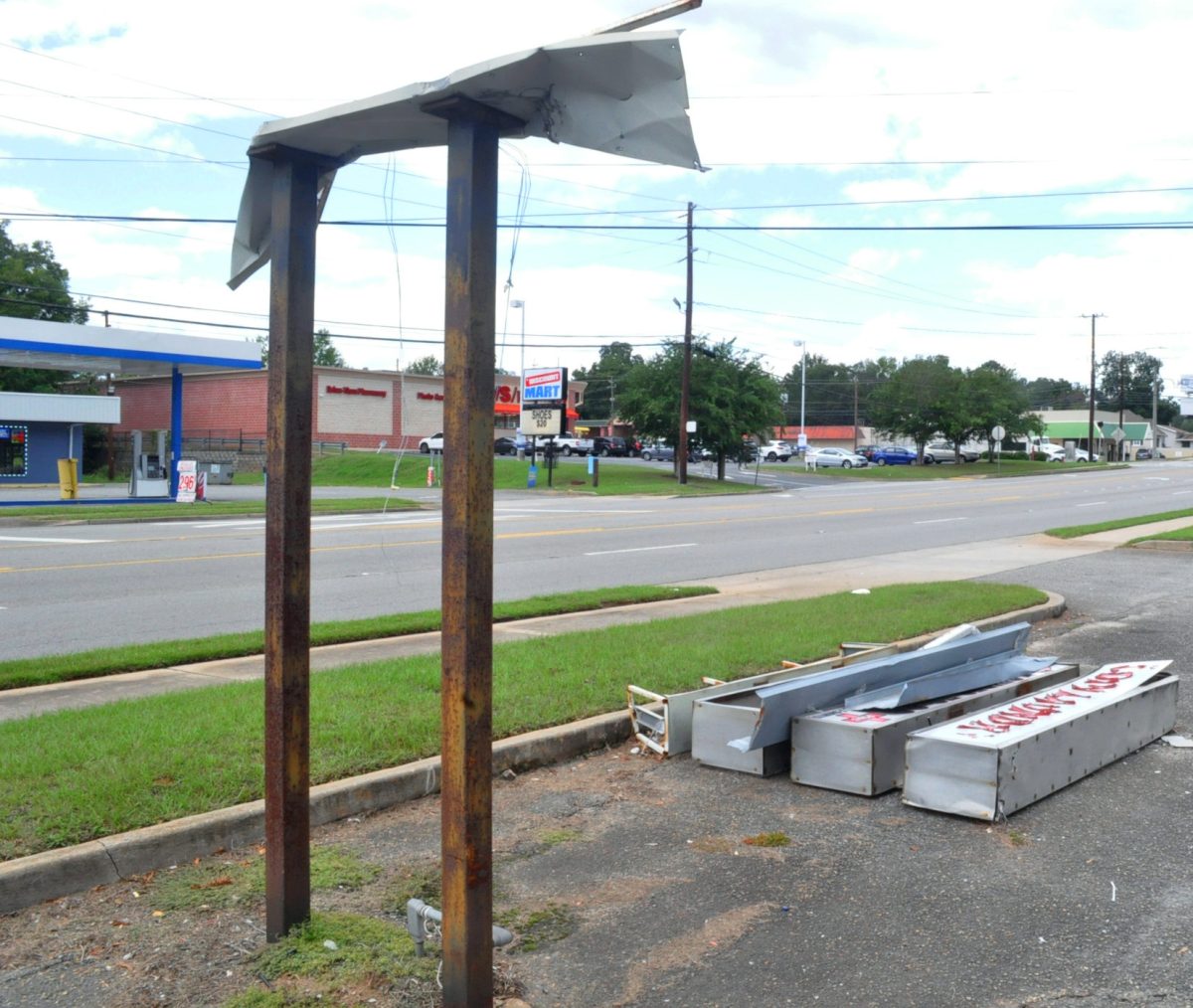GCSU canceled classes on Thursday and Friday, Sept. 26 and 27, due to Hurricane Helene, a Category 4 storm. The hurricane hit Baldwin County on Thursday evening and the heaviest effects continued into early Friday morning. The storm was about 350 miles long with wind gusts up to 140 miles per hour when it made landfall in Florida, and by the time it hit Milledgeville, the wind was estimated to be 45 to 50 mph with gusts reaching 70 mph, prompting Baldwin County to issue a local State of Emergency.
The hurricane made landfall on the big bend of Florida and then plowed north into all of Georgia and many of the surrounding states. This is the third storm to hit this region of Florida in the last 13 months.
The hurricane started as a Category 1 but grew to a Category 4 storm in a day. Its rapid strengthening contributed to the large amounts of damage seen across the southeast. The Gulf of Mexico is experiencing record warm water temperatures, with Hurricane Helene having a water temperature of 89 F. That is two to four degrees above what climate scientists consider normal during a typical hurricane season.
As of Monday evening, the storm is confirmed to have killed 116 people, including 25 in Georgia. More people remain missing, largely due to widespread loss of service and power.
The hurricane trudged all the way up to Asheville, North Carolina, flooding the whole town, with the Asheville River Arts District completely underwater. A Tennessee hospital was flooded as well.
Many Georgians lost power and spent the last few days dodging large debris, heavy rain and large wind gusts. All of Georgia experienced the impacts of the storm, but some areas were hit harder than others.
Preston Adkins, a senior exercise science major is from Waynesboro, Georgia, which is about an hour and a half east of Milledgeville and an hour south of Augusta.
“Waynesboro got destroyed with the hurricane, it’s basically flattened,” Adkins said. “There have been many trees that have fallen on numerous houses in our neighborhood. The entire community has rallied together to help everyone, such as sharing hot water and gas heaters.”
Hurricane Helene caused significant damage in Augusta as well. Around 5,000 powerline polls still remain damaged and most state routes now have at least one lane open.
Clayton Goolsby, a freshman exercise science major, traveled up to Augusta before the hurricane hit and experienced the storm hitting that area.
“It’s worse than we thought it would be,” Goolsby said. “With most roads having zero traffic lights, only three or four buildings with power and trees blocking roads. People fortunate enough to have chainsaws on hand like my dad and I spent most of Friday and Saturday clearing neighborhoods and roads so emergency vehicles could mostly drive through, but there’s really nothing to do but wait for power.”
Many other GCSU students call Augusta home. Hannah Lanoue, a junior marketing major, is also from Augusta.
“My family was hit hard,” Lanoue said. “Luckily, all people and animals made it through without a scratch and there wasn’t any real damage to the house. They still do not have power and are being told there won’t be power until Oct. 5 at the earliest. Schools are closed at least that long.”
GCSU has set up a Hurricane Relief Drive to help sister universities, namely Augusta University. The drive is asking for donations of non-perishable food items, particularly items that require little to no preparation, bottled waters, electrolyte drinks, hand sanitizer and hand wipes. Donations can be received at Campus Corner at the Student Activity Center, The Depot or at the Centennial Center.


